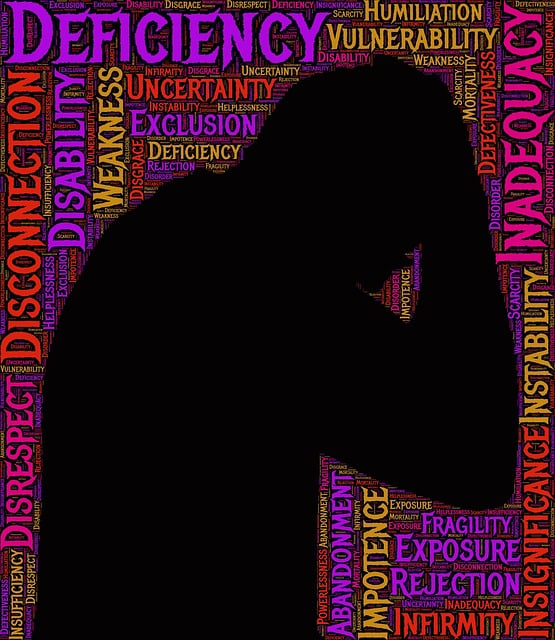In providing Therapy for Adults with Interpersonal Issues, mental health professionals must prioritize risk management. This involves comprehensive client evaluations, open communication, conflict resolution techniques, and burnout prevention. Integrating evidence-based practices, cultural sensitivity, and regular training ensures a safe environment while empowering therapists to address diverse needs effectively. Regularly reviewing and updating policies, treatment plans, and therapeutic tools based on best practices and client outcomes is crucial for quality care.
Mental health professionals are increasingly navigating complex ethical terrain when treating adults with interpersonal issues. Effective risk management planning is essential to ensure safe, ethical, and therapeutic outcomes. This article explores key aspects of risk in therapy, from understanding the nuances of adult interpersonal problems to developing robust strategies for hazard identification and mitigation. We provide practical guidance on creating comprehensive risk management plans, implementing effective strategies, and continually evaluating and improving mental health practice.
- Understanding Risk in Therapy for Adults with Interpersonal Issues
- Identifying Potential Hazards and Vulnerable Populations
- Developing a Comprehensive Risk Management Plan
- Implementation Strategies for Effective Risk Mitigation
- Continuous Evaluation and Improvement in Mental Health Practice
Understanding Risk in Therapy for Adults with Interpersonal Issues

In the realm of therapy for adults with interpersonal issues, understanding risk is paramount to effective risk management planning. These clients often present complex cases involving delicate dynamics, past traumas, and potentially volatile emotions. Therapists must be adept at recognizing and assessing risks such as self-harm, suicide ideation, or escalating interpersonal conflicts during treatment sessions. A thorough evaluation of each client’s history, current situation, and potential triggers is essential to identifying these risks. By implementing robust risk assessment tools and staying vigilant throughout therapy, mental health professionals can ensure the safety and well-being of their clients.
Communication strategies, conflict resolution techniques, and burnout prevention strategies for healthcare providers are crucial components in mitigating risks within this context. Therapists should foster open dialogues with clients to understand their perspectives and boundaries while remaining non-judgmental. Mastering these communication methods allows professionals to navigate sensitive topics effectively, de-escalate conflicts, and build trust. Additionally, integrating evidence-based practices and staying updated on research related to interpersonal therapy can enhance the therapist’s ability to anticipate and manage potential risks, fostering a safer therapeutic environment.
Identifying Potential Hazards and Vulnerable Populations

Mental health professionals often encounter a wide range of complex issues within their practice, making effective risk management planning crucial. The first step in this process involves meticulous identification of potential hazards and vulnerable populations. This includes recognizing various forms of interpersonal issues that clients may present with, such as trauma, abuse, or relationship conflicts. These challenges can significantly impact both the therapist and the client’s well-being, necessitating a proactive approach to mitigate risks.
When catering to diverse client groups, it’s essential to consider the unique needs of those struggling with mental illness. Stigma reduction efforts play a pivotal role in creating a safe space for therapy, fostering open communication, and encouraging clients to seek help without fear of judgment. Additionally, building emotional intelligence allows professionals to navigate these delicate situations, ensuring they can provide adequate support while promoting healthy coping mechanisms and stress reduction methods.
Developing a Comprehensive Risk Management Plan

In the realm of mental health care, where interpersonal issues and complex emotions are at the forefront, developing a robust risk management plan is non-negotiable. This strategy serves as a guide for therapy for adults, ensuring that professionals can navigate potential risks effectively while fostering a safe and supportive environment. A comprehensive plan involves identifying various hazards, such as client confidentiality breaches, ethical dilemmas, or even violence, and implementing tailored interventions.
By integrating cultural sensitivity in mental healthcare practice, providers can address unique challenges faced by diverse populations. This includes understanding cultural beliefs related to mental health, adapting therapeutic approaches, and promoting inclusive care. Moreover, regular Healthcare Provider Cultural Competency Training plays a pivotal role in enhancing mood management skills, enabling professionals to recognize and respond to emotional triggers promptly. Such proactive measures ensure that the therapy process is not just effective but also respectful of clients’ backgrounds.
Implementation Strategies for Effective Risk Mitigation

Implementing effective risk management strategies is paramount for mental health professionals to provide quality care while mitigating potential risks. One key approach involves integrating mental wellness journaling as a therapeutic exercise, empowering clients to reflect on their emotions and thoughts, thereby fostering self-awareness—a crucial aspect of risk assessment. This practice also serves as a safety mechanism, allowing individuals to express interpersonal issues privately.
Moreover, providing clear guidance on risk assessment during therapy sessions equips professionals with the tools to recognize and address emerging concerns promptly. Regularly reviewing and updating policies aligned with the latest mental health policy analysis and advocacy ensures that practices remain evidence-based and compliant, fostering a secure therapeutic environment for adults seeking therapy for interpersonal issues.
Continuous Evaluation and Improvement in Mental Health Practice

Mental health professionals must embrace a culture of continuous evaluation and improvement to enhance their practice. Regularly reviewing and updating treatment plans based on client outcomes, research findings, and best practices is essential. This involves critically assessing the effectiveness of therapy for adults with interpersonal issues, ensuring that evidence-based strategies are implemented. By fostering a mindset of continuous learning, professionals can adapt their approaches, incorporate new techniques, and enhance overall client care.
Integrating resilience-building exercises, crisis intervention guidance, and cultural competency training into routine practice benefits both clients and healthcare providers. These initiatives promote better coping mechanisms for patients while empowering mental health professionals to deliver more personalized, effective services. Through ongoing evaluation and a commitment to improvement, practitioners can navigate the complexities of interpersonal therapy, ultimately fostering positive outcomes in diverse client populations.
Mental health professionals play a vital role in addressing complex interpersonal issues, but this comes with inherent risks. By understanding the nuances of risk in therapy, identifying vulnerable populations and potential hazards, and implementing robust risk management plans, practitioners can ensure safer, more effective care for their clients. Continuous evaluation and adaptation are key to enhancing mental health practice, ultimately fostering a supportive environment where clients feel secure while navigating their interpersonal challenges. This comprehensive approach ensures that therapy for adults with interpersonal issues remains both transformative and responsible.










